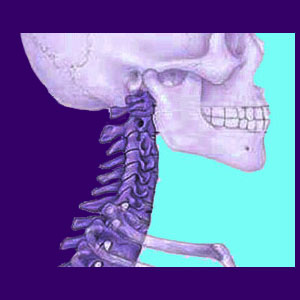
Trigeminal neuralgia, often abbreviated with the acronym TN, is a nerve pain syndrome which affects the structures of the face, including the nose, eyes, forehead, mouth and jaw. The condition is also sometimes referred to by the names tic doloureux and prosopalgia. TN is characterized by various disturbing symptoms, including pain in the face, jaw or even areas of the scalp, which may feel electrical in nature. Pain may occur without provocation or may flare-up when moving the facial muscles, such as when eating or talking. Pain may be episodic or chronic and may continue despite active medical care for an extended time frame.
This essay explores the widely accepted theory that TN is yet another of many possible expressions of the psychosomatic process.
Causes of Trigeminal Neuralgia
There are several suspected sources of tic doloureux and many doctors do not universally agree on what exactly might cause symptoms in most diagnosed patients. TN condition is known to be misdiagnosed often and most doctors still do not understand the exact specifics of the pain syndrome. Some of the theorized causes of pain in some patients include:
Dental issues are often deemed causative, including impacted teeth or dental nerve pain syndromes.
Some physicians have linked TN to the occurrence of temporomandibular joint dysfunction, which is another condition that is likely to occur due to the mindbody interactions.
Cranial nerve compression issues, typically involving the 5th cranial nerve, are common structural causative theories, although why the nerve has suffered is rarely clear.
TN is often linked to migraine or tension headaches as well as many other chronic pain conditions in the head or upper body.
One of the most popular and accepted theories for the origin of TN is a possible psychosomatic causation, enacted by ischemia of the neurological tissues that innervate the affected areas of the face.
Psychosomatic Tic Douloureux
As a substitute symptom or primary psychologically-induced pain syndrome, any type of neuralgia is easily produced by simple oxygen deprivation of the neurological structures in a given area.
Patients with long-term or recurrent tic doloureux typically do not achieve a correct diagnosis based on a structural abnormality, since their pain may be of mindbody origin. This explains why so many of these poor souls never really find lasting relief from their recurrent facial pain.
Knowledge therapy has proven itself to be both a logical and effective treatment option for many neurological complaints and some lucky patients can achieve a full cure using these easy to apply techniques.
Trigeminal Neuralgia Treatment Tips
Nerve pain of any type is an open invitation to doctors to put you in treatment for an extended period of time. Luckily, TN is not generally resolved surgically, which is a very good thing indeed. If it were, the diagnosis would rise sharply, since there would be even more money to be made. Regardless, symptomatic modalities are still profitable and TN is certainly a condition beginning to hit its stride in the medical industry.
If you have tried a world of possible treatments for your agonizing prosopalgia without success, you might want to consider the alternative approach that has no costs and no risks. Knowledge therapy has worked well for many positively diagnosed patients who have discovered how TN might just originate in the mind, rather than from any structural process. Best of all is that you can control how and when the therapy is applied and how long you must actively treat the condition before it fully resolves.
Back Pain > Psychologically Induced Pain Syndromes > Trigeminal Neuralgia




